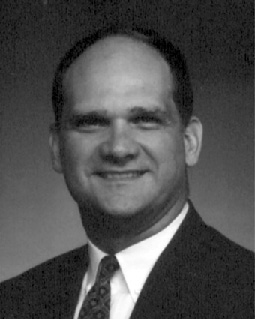The following is from an article written on May 13, 2008 for the American Health Care Assn.
In releasing a new Lewin Group analysis of the Bush Administration's $770 million cut to Medicare-financed nursing home care, national and state long-term care leaders warned the regulatory-driven cuts not only jeopardize seniors' access to quality nursing home care - particularly in rural areas - but also present a danger to the U.S. economy and the state and local caregiver jobs base.
During a media teleconference to release the Lewin economic impact data as well as new state-by-state impact analysis from the American Health Care Association (AHCA), Al Dobson, a Lewin Group consultant, said the so-called "Forecast Error" rule proposed on May 1, 2008 by the Centers for Medicare and Medicaid Services (CMS) represents a net negative total economic impact of $4.5 billion for FY 2009. In addition, the $770 million decline in revenue will impact approximately $1.8 billion in wages, 43,530 jobs and approximately $661 million in federal, state and local tax revenue in the first year.
Dobson said, "Policymakers must understand and reconcile the dual dimensions of these Medicare cuts in that they not only directly impact seniors' access to quality nursing home care, but also have a negative ripple effect throughout our national, state and local economies."
Bruce Yarwood, president and CEO of AHCA, also said a separate analysis of the $770 million CMS Medicare cuts finds the regulatory changes will incur an $11.12 per patient day (PPD) cut in Medicare-financed nursing home care nationally. The analysis, computed by the AHCA Reimbursement and Research Department using Office of Management and Budget (OMB) data from the Bush Administration's FY 2009 Budget and the (CMS), is in the accompanying chart.
"In addition to the negative impact the CMS policy will have on our economy and employment base, the regulatory changes will severely undermine the growing complex health care needs of America's oldest, sickest seniors," Yarwood said. "The more lawmakers on both sides of the aisle learn about the nature and negative impact of the Bush Administration's regulatory changes, especially as they relate to how it impacts their states' seniors, the more we predict they will seek to halt them."
Alan Rosenbloom, president of the Alliance for Quality Nursing Home Care, said the CMS rule "will unquestionably undermine our profession's long-standing goals of increased efficiency and effectiveness - which benefits nursing home patients, our caregiver workforce, and taxpayers alike." In moving forward with these regulatory cuts, he continued, "CMS fails to factor in important changes in Administration-initiated Medicare policies that, as intended, are successfully and intelligently moving large numbers of high acuity patients into skilled nursing facilities. These patients would otherwise have been cared for in a higher-cost setting - which is completely at odds with the Medicare modernization efforts America needs and that seniors deserve." Rosenbloom said the policies now in effect saved Medicare $709 million in 2006 alone, according to a previously-released study by Avalere Health, LLC.
Yarwood and Rosenbloom argued that as the nature of the nursing home patient population continues to change and evolve, it should be the policy of the federal government to help facilitate the ability of nursing homes to accommodate the care needs of higher-acuity, post-acute Medicare beneficiaries.
Tony Marshall, senior VP & COO of the Florida Health Care Association (FHCA) in Tallahassee, said the CMS action to cut Medicare-financed nursing home care will be especially damaging to seniors in states like Florida, who, he says, have just endured substantial Medicaid funding cuts as a result of recent state legislative actions. "As a result of the CMS policy change, Florida seniors are facing the second highest Medicare funding reduction in the nation -- on top of the state Medicaid cuts passed into state law in recent weeks," Marshall said. "Medicare and Medicaid funding are inextricably linked. The combination of cuts to both programs squeezes facilities in a manner harmful to older residents' rising care needs, as well as to our local economy and caregiver jobs base."
Yarwood and Rosenbloom also noted that a diverse group of lawmakers are leading the effort on Capitol Hill to reverse the proposed CMS policy.
Michael Bertrand, MAI is principal of Bertrand & Associates, Tolland, Conn.
Tags:
$770m cut to Medicare-financed nursing home care will have ripple effect to economy
May 27, 2008 - Spotlights









.png)